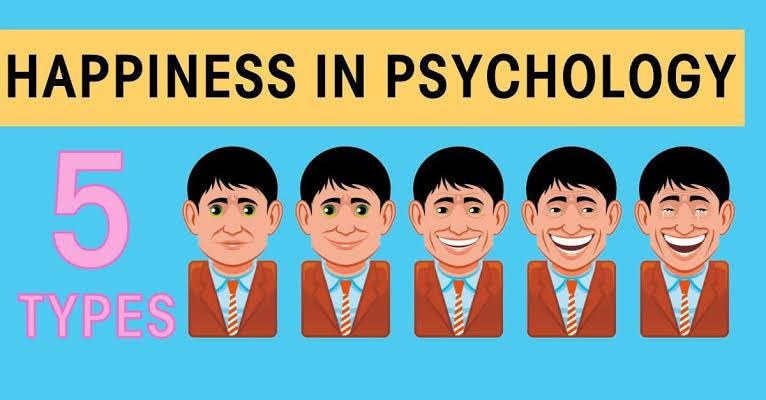What Is Happiness and Ways To Get Happiness?

Table of Contents
What is Happiness?
Bliss is an intellectual state. It’s a ‘well-being and pleasure’ state, in particular.
The definition can be difficult, however, and hypotheses regarding the word cause confusion. Many do not even know it can be deliberately practiced to learn how to be happy.
Some people assume it speaks of an emotion such as pleasure or joy when they hear the word happiness. It’s what people feel right here and now for them. And we do this by taking steps to be happy every day. Here are some tips about how to start today more happily.
How to find happiness?
1. Choose happiness
It is not an outcome of present circumstances that I realize most about happiness. On the contrary, the choice is happiness. Are some days easier than others? Absolutely. But if you’re in the trap of thinking that you have to change circumstances before you can be happy, you never get there.
2. Focus on the good
Good things are in your life right now: you are alive, you are fed, you are healthy, you have friends and family, and you have every single day the opportunity to do meaningful work.
Perhaps not all of those things are true for you now, but surely some of them are, meaning that you can concentrate on the good in your life.
Happiness is about perspective, and you’ll probably find them if you’re looking for reasons to be happy. Happy people concentrate on positive ideas.
3. Stop comparing
Comparison will steal you from it no matter how you define happiness—short or long-term. No winner in comparison game exists, be it we compare our finances, body type, holiday skills, house size, sides, or shoe size.
Whenever you want, you can stop. Be thankful for what you have, appreciate who you are, work hard to live your best life every day, and end your comparison to others.
4. Practice gratitude and generosity
A few topics emerge from every study of happiness in the world of positive psychology. We find gratitude and generosity among these recurring themes.
5. Do not pursue physical property
Possession is vital for life, but consumerism and happiness seemed to confuse our society.
Little by little, we are beginning to believe their empty promises and waste a life of stuff that can never be fulfilled. We sacrifice time, money, and power and concentrate on chasing and collecting things that are not necessary.
6. Be present in your relationships
He has learned, and study elsewhere confirmed, that connections hold the key to happiness: closer relationships, over money or fame, keep people happy over the years, as shown by the study.
Moreover, these ties are better predictors of long and happy lives than social class, iQ, or even genes, which protect people from discontent and help to slow mental and physical decline.
7. The development of healthy customs
The credit for saying, “How we spend our days, naturally, is how we live.” Annie Dillard is accredited for saying. And she’s right. And she’s right.
Our lives are full of days, our days are full of hours, and this time is full of everything you wanted to fill in! Therefore follow healthy habits which add value to your hours, days, and lives.
8. Pursue your passions
We have a natural pursuit of self. To pursue our interests, we don’t need to be reminded. We strive to survive, promote ourselves, update ourselves, and exalt ourselves as if they were hardwired in our genes. There are so many who are pursuing happiness. Let’s ensure that we can find it, both in the short and long run.
What is International Happiness Day?
The international day of Happiness is celebrated every year all over the world on March 20 to show the importance of happiness in life. Today is, without a doubt, a happy day! Since 2013, the United Nations has observed the International Day of Happiness recognizing the significance of happiness in people’s lives all over the world.
In 2015, the United Nations established the 17 Sustainable Development Goals to eradicate poverty, reduce inequality and protect our planet – three key aspects that lead to well-being and happiness. The United Nations invites people of all ages, to rise to celebrate the International Day of Happiness.
Types of Happiness

Joy
Joy senses that in this present moment, you lose yourself and appreciate what you have. You can sneak up and sometimes disappear if you try to analyze it too much, which is fleeting. However, it also can be found in many things if you have the right attitude and perspective, and therefore it is a relatively accessible way to seek happiness.
Excitement
Even if it can last longer than happiness, this feeling is still fleeting—it dissipates quite quickly and can become a nuisance. This can, however, be an incentive. For example, excitement about a new job can motivate you to work harder, and excitement about a different relationship can motivate you to work more hard.
Gratitude
Thankfulness can vanish if you don’t focus on it actively, but it’s also an important form of happiness. Research has shown that those who regularly feel gratitude are happier and healthier than those who are less likely to feel these feelings.
In addition, gratitude can be cultivated very easily. For example, you can use a journal of gratitude, a meditation on love-friendliness, or tell people in your life that you value them and often.
Pride
While smuggling or competitive pride can be an adverse event, feelings of pride may be gratitude that is turned towards you and a great way to enjoy. You can be proud of your work, family, home, and self. You can put effort, care, and love into everything you put in.
Optimism
In addition, studies link optimism with higher results in life. 3 Optimists tend to concentrate on options and combine gratitude and pride. You are grateful for all the opportunities present in life, proud of your ability to use these resources, and have a strong belief in yourself and your capacity to try for whatever successful goals.
Components of happiness
- It is thought that these three elements are more measurable and definitive than happiness. The first positive emotion is what we experience: pleasure, rapidity, excitement, warmth, and comfort. We can easily be in that element of positive emotion if we go on holiday or spend time with friends, secure a grade, or win a new job. However, this state is temporary and only lasts until we look for more and more.
- Secondly, involvement: creative activities, competitive sports, writing, playing a tool… pursues where you lose yourself and a sense of time. This element is the best of athletes, musicians, and artists. In this situation, the individual often becomes part of the action and cannot separate or even separately explain the element. This is the area of personal creativity.
- The third element of gladness is significance. In other people, meaningfulness is always; a purpose greater than the self. A meaningful life involves belonging to something you think is more important than you and serving it. Unfortunately, most of us live life without endlessly realizing this element. This element is probably in the Dalai Lama and Mom Teresa; many others take on and serve a humanitarian cause when their own needs have been fulfilled. Although its meaning potential is limitless, it can be meaningful to pursue a small local cause serving needy people over a longer period.
Tips for Happiness in Daily Life

I want to propose some tips to help you fill your life with more happiness. These are simple tips that you can follow easily.
1) Change your view of life
Try to change your way of seeing life. Have a look at the light side of life, and try to be more optimistic. Your mind may pull you into thinking about negativity and problems. Don’t just let it. Don’t let it. Every time you get caught in negative thoughts, stop and look at all situations on the good and positive sides.
2) Look for solutions
Think of solutions, not problems. Thinking about issues and closing your mind is so easy, so you can’t see a solution. This situation should be avoided. Instead, it would help if you concentrated on finding solutions. You will find a way out if you adopt this habit of thinking.
3) Listen to music that relaxes or raises
Music can elevate the feeling of happiness, emotions, and the body.
4) See funny comedies to mock you.
You can forget your problems and evoke your feelings with comedies and sitcoms. The objective is not to escape but to raise your mind. You can do good at a small dose once in a while.
5) Reading
Take a few pages of an inspirational book or article every day. This not only increases your knowledge but also helps you to see life from a broader perspective.
6) Observe your thoughts
Watch your thoughts carefully. What kind of ideas do you believe? Do your best to move your mind to more happy things if your thoughts are depriment, negative, and unhappy. Whenever you think of negative thoughts, begin to think of pleasant things. Your mind might be resistant, but you must continue to concentrate on good and happy thoughts.
7) Feel thankful for what you have
Sometimes you start the day by wanting to reach several goals. You might feel frustrated and unhappy because you could not do all that. Plans often take longer than anticipated. You don’t have to be angry or unhappy. If you look at what you’ve already done, you’ll feel better.
Look at what you did, not at what you couldn’t do. So often, you let yourself be frustrated even if you’ve done a lot during the day because you didn’t do some minor tasks.
8) Each day, do something good for yourself.
This can be small; you can purchase a book, eat something you love, watch your favorite TV show, watch a film or wander around the beach.
9) Do at least one thing every day to satisfy others.
It may just be a kind word that will help your fellow Members stop your car from crossing, give someone else your seat on a bus, or give someone you love a little present. There are endless possibilities. You’re happy when you make someone happy.
10) Always wait for joy.
The greatest happiness principle is to develop a habit of waiting for happiness. Take the idea that you deserve it, and you can reach it.
11) Do not envy happy people.
Envy is a misconception that retains joy. Therefore, please take part in your happiness with them and rejoice.
12) Join the glad people
Therefore, it is contagious, and it is a good idea to associate and seek friendship with happy people.
13) Do not take things personally
Do your best to remain unconnected if things don’t work as intended and someone criticizes you. Detachment helps you keep calm and keep your moods and responses under control. Disclosure is not indifference. It is accepting the good, the bad, and the balance. Detachment has a great deal to do with interior peace, and internal peace leads to joy.
14) More frequent smile
Smiling affects your feelings greatly. Smiling makes people more like you, leading to a better mentality.
15) Learn to calm down your mind
When your mind is calm, you have interior tranquility, and when you have inner peace, you have happiness. The mind is like a stormy ocean on a windy day in a constant state of restless thinking. When you calm your mind down, your life is filled with peace and happiness.
10 Signs You’re a Mentally Strong Person
1. Being kind.
Many think you’re a pushover or a pleaser for people to be kind. But it can be a sign of strength to show sympathy for a neighbor, give the benefit of a colleague and spend time helping someone in a project.
2. Changing your mind.
If you change your mind, you won’t be washy or easily influenced. Instead, it could indicate that you are open to more information and other ideas to be heard. It can be proved that you are growing and learning that your thoughts on politics change over time or that your values have shifted over time when you get older.
3. Acknowledging your weaknesses.
There’s a difference between the truth and the truth. For example, recognizing that you are bad at confronting people or fighting to organize may show you are strong enough to admit your imperfections.

4. learn patiently.
Patience is often confused with a lack of activity or ambition with so much attention given to “hustle”. However, patience is needed to achieve big goals – like debt relief or forming. The real modification does not occur overnight. It takes strength to work out the patience to get there.
5. Asking for help.
It’s a real act of courage to say, “I can’t do this by myself.” Whether you ask your boss for more help or contact a psychiatrist, asking for help requires humility and character strength.
6. Failing.
It means that you are living well within your comfort zone if you succeed in anything you do. But, on the other hand, to make mistakes and failures means that you challenge yourself—which is a sign of strength.
7. Expressing emotions.
Some people will quickly show anger, but just under those wrathful emotions, like sadness and embarrassment, and disappointment, are more uncomfortable. However, often it’s easier to say “I’m a fool,” than to say “I’m hurt.”

8. Walking away from here and walking away.
Whether you are leaving a goal because the effort you need to achieve it is not a high priority or leaving a heated dispute because you don’t know anything productive will happen, leaving does not mean leaving.
9. Improving yourself.
Some people look at somebody reading a book about himself-amélioration (sometimes they are the same people who laugh at the excessive weight of the gym). But it isn’t easy to improve yourself — physically, spiritually, or emotionally.
10. Keep quiet.
“She only stood there, can you believe it? A small piece of mind I would have given!” Comments such as this imply that those who are still calm are without the courage to stand up.
Meditation Gives Us Access to Our Happiness & Well-Being

The mind possesses innate qualities of welfare and clarity, which lie below the superficial degree of discontent. The main meditation objective is to access the positive qualities of the intellect, recognize them and enhance them.
The less we are dependent on our happiness in outside situations and the more we can rely on the natural and positive qualities of mind: love, satisfaction, well-being, and peace.
Are you want to know about Meditation, Meditation techniques, and the benefits of meditation? Click on Meditation for more about this topic.
One of the greatest achievements can be achieved through access to our natural happiness and inner well-being. They’re always with us because they don’t rely on anything else: nobody can remove them. They rely only on us and have a positive impact on everything in our lives.
There is a hidden treasure within it, like discovering. We start by focusing internally to access this treasure – and this requires training.
This training is meditation. Meditation. We will be unhappy to trust our basic, natural goodness and well-being through our meditation, which unlocks our potential and gives our lives enormous significance. Meditation doesn’t make you happy – it unlocks the joy you’ve always had to ask for.
How Does Happiness Impacts Health?

A recent study shows that everyone tries to find three happiness ways: doing good for others, doing good things, and doing good things for yourself. In addition, the most optimistic people are the happiest on the whole.
Health implications
Glory is a sense of purpose and well-being for most people. However, this positive attitude reflects a range of physical and mental health effects, including:
Opening up the mind for positivity is important to an individual’s well-being: optimism and vitality.
Enhance the ability of a person to solve problems: Positive people believe that they can achieve their goals and that they want to achieve them.
Because they seek other positive people, they build the physical, intellectual, and social resources that enable people to learn more.
Current Research about Happiness
It is noted by yourself that happiness is not a permanent condition. If you want to be happy all the time, you are guaranteed to be unhappy trying. It strongly depends on age. The U-shaped happiness curve showed that the people are satisfied at age of 20, in their mid-40s age their mood darkens. It slowly rises again to old age.

Quotes about happiness
- Happiness is when what you think, what you say, and what you do are in harmony. – Mahatma Gandhi
- There is only one happiness in life, to love and be loved – George Sand
- Happiness lies in the joy of achievement and the thrill of creative effort. – Franklin D. Roosevelt
- Be kind whenever possible. It is always possible. – The Dalai Lama
- Adopt the pace of nature: Her secret is patience. – Ralph Waldo Emerson
- Spread love and happiness everywhere you go. Let no one ever come to you without leaving you happier. – Mother Theresa
- Action may not always bring happiness, but there is no happiness without action. – William James
Now! We make happiness a conditional emotion far too often, reasoning that if I achieve this, then I will be happy. If I buy this, I’ll be overjoyed. Happiness does not work like this. Every day is full of both happy and sad moments. When these happy moments arrive, they must be savored. Do not use if-then logic to postpone your happiness.
“Do you think money will make you happy?” is the real question here. Money can’t buy happiness, is the answer? That’s all there is to it! This audacious and sometimes contentious assertion is mathematically supported in Chapter 20 of the recommended additional reading listed below.
Yes, it is completely normal to be unhappy from time to time. In the absence of unhappiness, happiness cannot exist. Accept that you sometimes have to be unhappy if you want to be happy. The key to happiness is a regular dose of discontent. In isolation from the other one emotion cannot exist.
Look for and appreciate the joy in your life daily. It exists! Because you are only looking for ecstasy, you may be missing out on happiness. Do not dismiss contentment because it leads to happiness as well. The journey, not the destination, defines happiness. You must have a good time on the journey.
Different things bring joy to different people. Thoughts, on the other hand, are a common component of happiness. Not our surroundings, but our thoughts, make us happy.
You can be on a tropical island vacation, but you will be unhappy if your mind is on work. You can be stuck in traffic, but you will be happier if you choose to think about something pleasant instead of your unpleasant surroundings.







